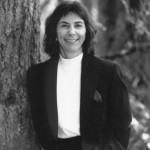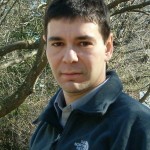 Kate Bullard Adams leads a very pedestrian life in Charleston, South Carolina, and depends on her writing to liven things up. Right now, her fictional cast of pre-Great Recession investment bankers on Wall Street is giving her all the excitement she can handle. Her short stories have appeared in Chautauqua, Harpur Palate, turnrow, The Portland Review, and elsewhere, and both her short and long fiction have reached the final rounds for various awards, including Glimmer Train’s Short Story Award for New Writers, the A.E. Coppard Prize (Coffee House Press), and the Faulkner/Wisdom Prizes. Just last week, she learned that her only unpublished story is a finalist for december’s Curt Johnson Prose Award in Fiction. Wish her luck.
Kate Bullard Adams leads a very pedestrian life in Charleston, South Carolina, and depends on her writing to liven things up. Right now, her fictional cast of pre-Great Recession investment bankers on Wall Street is giving her all the excitement she can handle. Her short stories have appeared in Chautauqua, Harpur Palate, turnrow, The Portland Review, and elsewhere, and both her short and long fiction have reached the final rounds for various awards, including Glimmer Train’s Short Story Award for New Writers, the A.E. Coppard Prize (Coffee House Press), and the Faulkner/Wisdom Prizes. Just last week, she learned that her only unpublished story is a finalist for december’s Curt Johnson Prose Award in Fiction. Wish her luck.
Kate, chapter four of Bailout revisits an earlier period in Alex’s life, during the early days of her investment banking career, as a floor trader well before she became a candidate to become Wall Street’s first woman CEO. How does the chapter fit into the greater context of the novel in explaining her character? Does the loss of her stillborn child ultimately enable her professional success, either in practical terms or as form of motivation?
This chapter ties in with the theme of risk, which is central to the novel and to Alex’s character. For a trader, like Alex, risk is a necessary evil. Any trade entails a certain amount of risk, and the greater the risk, the greater the potential rewards as well as the potential losses. When a market is booming and rewarding increased risk, as was the case with real estate and related securities leading up to the recent crisis, it’s easy for a trader to forget the possible downside. For Alex, however, the inexplicable loss of the child that she had carried to term, and expected to deliver successfully, taught her the devastating lesson that “there was no way of ever knowing the worst that could happen until it was too late.” To escape the pain of that loss and the attendant demise of her marriage, Alex threw herself into her career at Grady Cole. There, her single-minded focus along with her intimate knowledge of unforeseen risks and their incalculable dangers propelled her career and positioned her to become the first female CEO on Wall Street.





